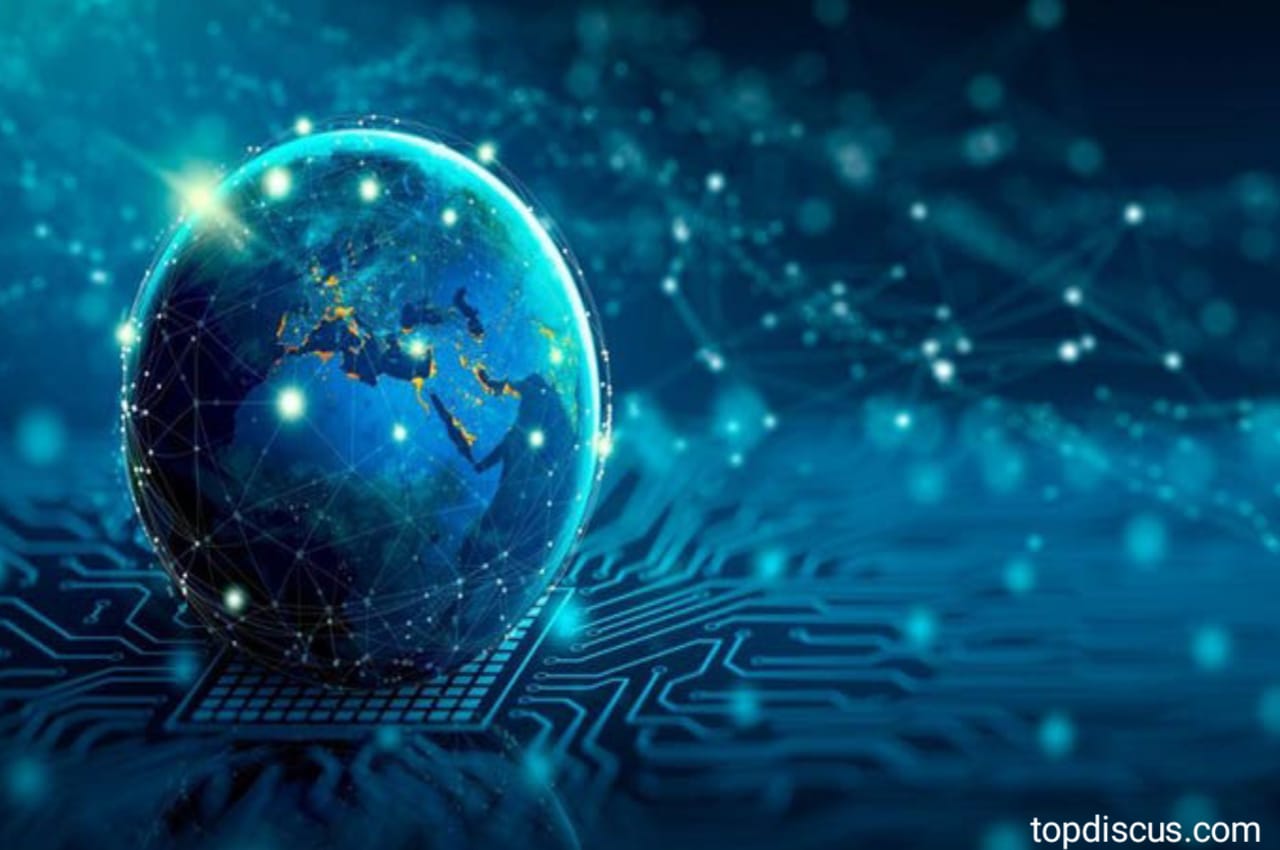“Top 5 Technologies in the World”Welcome to the fascinating world of technology! In this rapidly advancing digital era, countless innovations have transformed our lives and continue to push boundaries. The possibilities seem endless, from artificial intelligence that mimics human cognition to virtual reality experiences that transport us to new realms.
Today, we will explore the top 5 technologies in the world that have made a significant impact across industries and are shaping our future. So fasten your seatbelts and prepare for a thrilling ride through cutting-edge advancements! Whether you’re a tech enthusiast or simply curious about what lies ahead, this article will captivate your imagination and amaze you with the wonders of modern innovation. Let’s dive right in!
-
Artificial Intelligence
-
Virtual and Augmented Reality
-
Blockchain Technology
-
Internet of Things (IoT)
-
5G Technology
1. Artificial Intelligence:
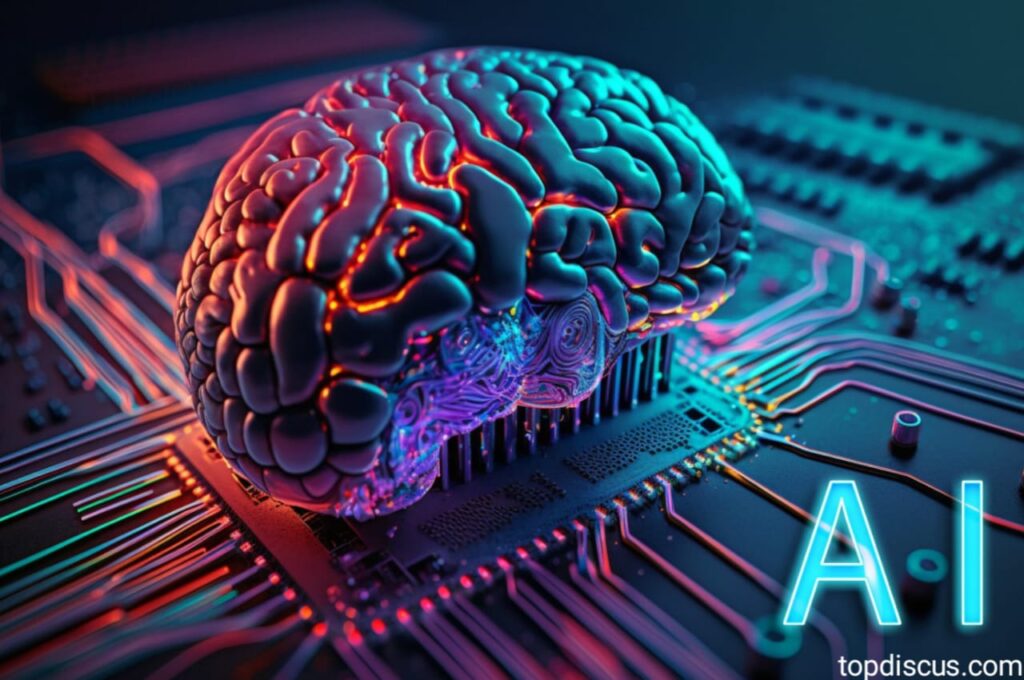
Wikipedia Link
Artificial Intelligence (AI) has undoubtedly revolutionized the world as we know it. With its ability to mimic human intelligence and perform tasks once reserved for humans, AI has opened up possibilities across various industries.
In healthcare, AI is used to analyze medical data and help doctors make accurate diagnoses. It can quickly sift through vast amounts of information, identify patterns, and provide valuable insights that can lead to more effective treatments.
In retail, AI-powered chatbots enhance customer service by providing instant responses and personalized recommendations. These virtual assistants can understand natural language processing and offer tailored solutions based on individual preferences.
The automotive industry is also benefiting from AI with the development of autonomous vehicles. Self-driving cars use complex algorithms and sensors to navigate roads safely, reducing accidents caused by human error.
Moreover, AI is transforming the way businesses operate through predictive analytics. Organizations can make informed decisions about market trends and consumer behavior by analyzing large datasets and optimizing their strategies.
With continuous advancements in machine learning algorithms and neural networks, the potential applications of AI are limitless. From improving cybersecurity measures to optimizing manufacturing processes, this groundbreaking technology continues to shape our future.
It’s important to note that while AI offers numerous advantages, such as increased efficiency and productivity, ethical considerations should always be considered. As we embrace these technological advancements with open arms, let us not forget our responsibility towards ensuring transparency, fairness, and accountability when deploying Artificial Intelligence systems across society.https://topdiscus.com/ is our home page link.
2. Virtual and Augmented Reality:
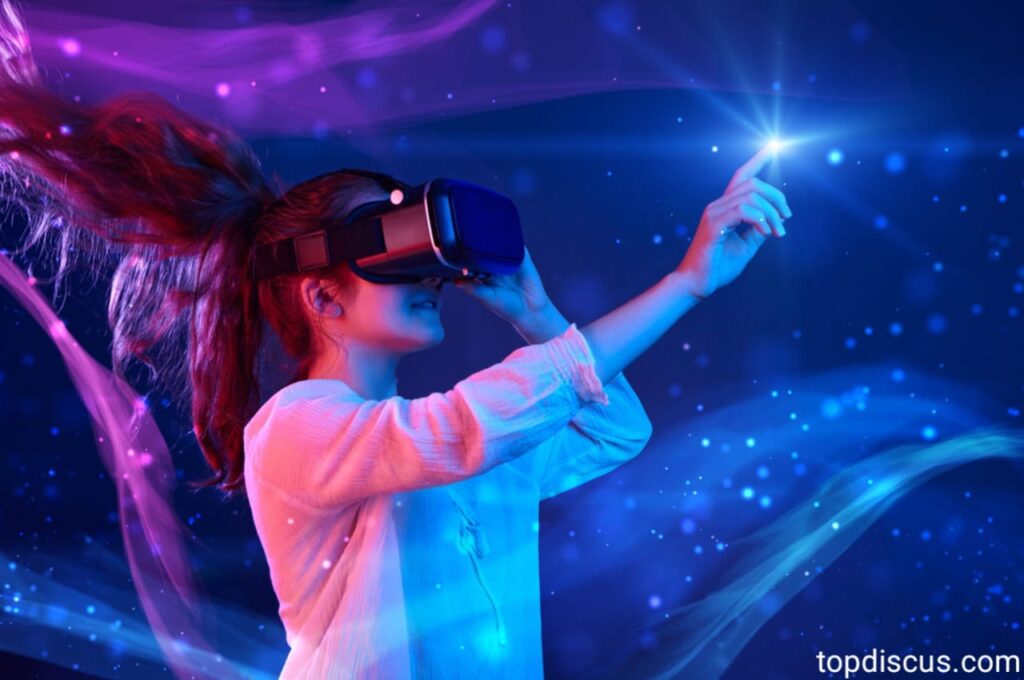
Virtual and Augmented Reality (VR/AR) has revolutionized our technology experience. By blending the digital world with our physical surroundings, VR/AR has opened up a new realm of possibilities.
With VR, users are transported to virtual environments that can mimic real-life scenarios or take them on fantastical adventures. Whether exploring a far-off destination or immersing oneself in a video game, VR provides unparalleled immersion.
On the other hand, AR overlays digital information in our real-world environment. This technology has applications in various fields, such as education, healthcare, and gaming. For example, doctors can use AR to visualize complex medical procedures before performing them on patients.
Both VR and AR have made significant strides in recent years thanks to advancements in hardware and software capabilities. We now have more comfortable headsets with improved graphics and motion-tracking systems that enhance the overall experience.
As these technologies evolve, we can expect even more beautiful developments worldwide. From interactive storytelling experiences to virtual social interactions, VR/AR is poised to reshape how we perceive and interact with the world around us.
In conclusion,
Virtual and Augmented Reality have transformed entertainment, education, healthcare, and many other industries by providing immersive experiences like never before. These technologies hold immense potential for future innovation and will undoubtedly continue to shape our world in profound ways
3. Blockchain Technology:
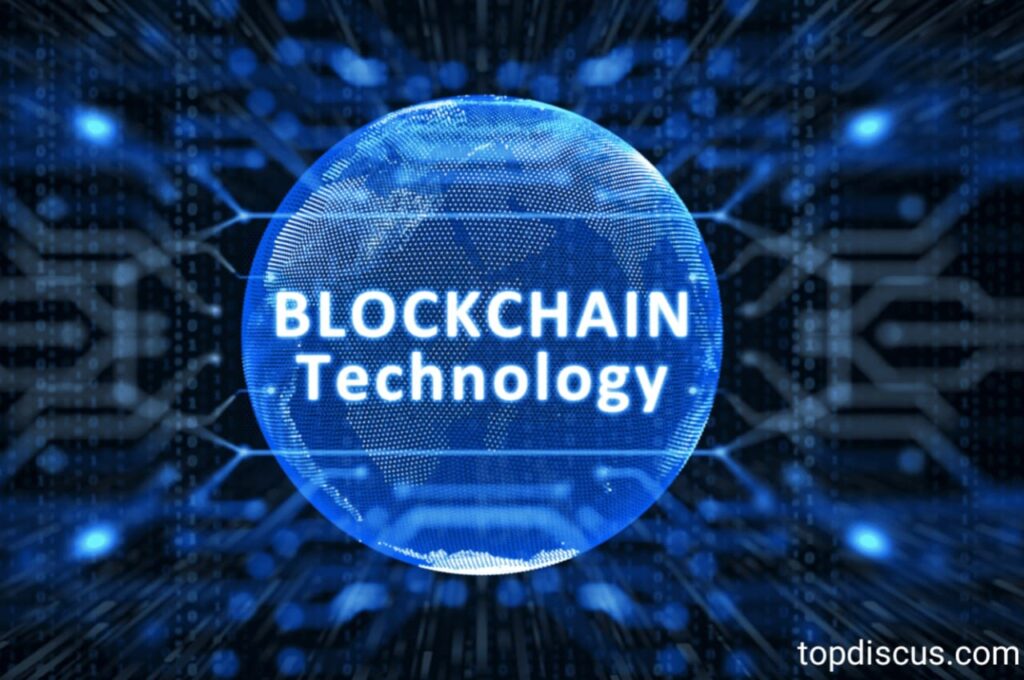
Blockchain technology has been making waves in various sectors across the globe. This decentralized and transparent system revolutionizes conducting transactions, storing data, and verifying information.
One of the key features of blockchain technology is its ability to create a secure and immutable digital ledger. Each transaction or data is recorded as a “block” and linked in a chain-like structure. This ensures that every transaction is verified by multiple participants on the network, making it nearly impossible to tamper with or alter any records.
The potential blockchain applications are vast, ranging from finance to supply chain management to healthcare. In the financial industry, blockchain can streamline cross-border payments, eliminate intermediaries, and reduce fraud. It can also enable more efficient supply chain management by providing real-time tracking and verification of goods.
Moreover, blockchain technology offers increased security as compared to traditional systems. With its decentralized nature, hackers can exploit no single point of failure. Additionally, because each block contains a unique cryptographic hash linking it to previous blocks in the chain, it becomes tough for anyone to manipulate or falsify data.
Despite its immense potential benefits, challenges must be addressed before widespread adoption can occur. For blockchain technology to reach its full potential, scalability limitations and energy consumption must be overcome.
In conclusion (not concluding), blockchain technology holds great promise for transforming industries worldwide by offering enhanced security, transparency, and efficiency. As this technology continues to evolve and mature, we can expect even more exciting advancements shortly!
4. Internet of Things (IoT):
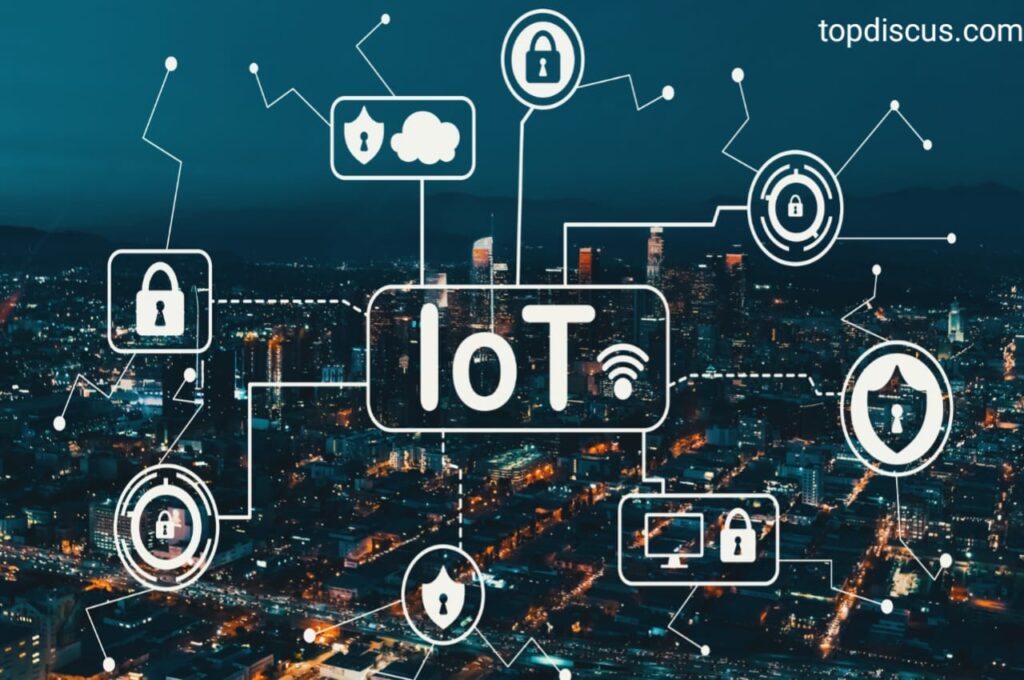
The Internet of Things (IoT) has revolutionized how we live and interact with technology. It refers to the network of physical devices, vehicles, appliances, and other objects embedded with sensors, software, and connectivity to exchange data over the Internet. This interconnectedness allows seamless communication between devices, creating a more efficient and convenient world.
One area where IoT has made significant advancements is in our homes. Smart home devices such as thermostats, security systems, lighting controls, and refrigerators can now be connected to the Internet. This means you can control your home’s temperature while you’re at work or receive alerts on your phone if someone enters your house unauthorized.
Another exciting application of IoT is in healthcare. Wearable devices like fitness trackers and smartwatches help monitor vital signs such as heart rate and sleep patterns. These devices can provide valuable data to doctors, who can make more informed decisions about their patients’ health.
In transportation, IoT has led to innovations such as connected cars with built-in navigation systems, real-time traffic updates, and even self-driving capabilities. This not only improves safety but also enhances efficiency on the roads.
Furthermore, industries like manufacturing have adopted IoT technologies to optimize operations through predictive maintenance of machinery and inventory management systems that automatically reorder supplies when they run low.
The Internet of Things has opened up a world of possibilities across various sectors by connecting previously isolated objects into one intelligent network. As this technology continues to evolve rapidly, so does its potential impact on our lives!
5.5G Technology:
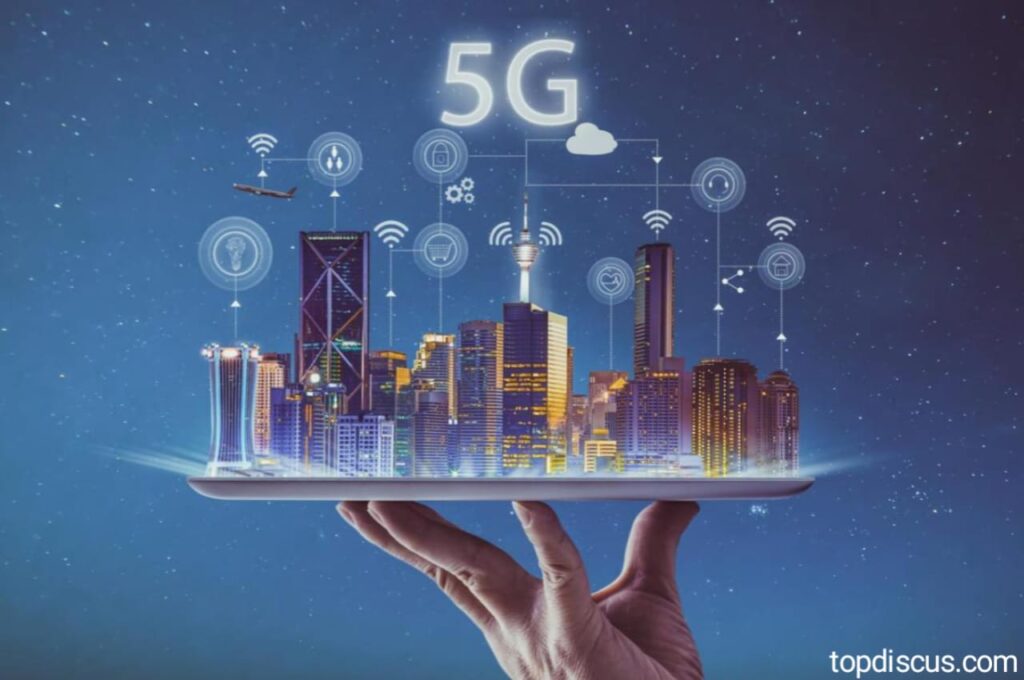
The world is on the cusp of a technological revolution, and at the forefront of this wave is 5G technology. With its lightning-fast speeds and low latency, 5G is set to transform industries across the globe.
One area that will benefit significantly from this new technology is telecommunications. With 5G, we can expect faster download and upload speeds, improved call quality, and seamless video conferencing experiences. This means no more connections or dropped calls – a game-changer for businesses and individuals alike.
But it’s not just about speed; 5G has the potential to unlock new opportunities in fields such as healthcare, transportation, and manufacturing. Imagine remote surgeries performed by doctors using robotic arms with almost zero delay or autonomous vehicles communicating with each other in real time to prevent accidents.
Moreover, smart cities powered by 5G will become a reality. Everything will be interconnected for efficient monitoring and control, from intelligent traffic management systems to connected infrastructure like streetlights and waste management systems.
However, it’s important to note that implementing 5G technology comes with its own set of challenges. The infrastructure required for widespread adoption needs significant investment, while concerns around data security also need addressing.
Nonetheless, when fully deployed, 5G promises to bring us into an era where connectivity knows no bounds. It will revolutionize our lives – making everything faster, wiser, and more convenient.
Conclusion:
In this ever-evolving digital era, the world is witnessing groundbreaking technologies reshaping various industries and revolutionizing how we live and work. From Artificial Intelligence to 5G technology, these advancements have immense potential to transform our lives for the better.
Artificial Intelligence (AI) has emerged as a driving force behind many technological innovations. With its ability to mimic human intelligence and perform tasks efficiently, AI is being adopted in various sectors such as healthcare, finance, manufacturing, and more. Its applications range from virtual assistants like Siri or Alexa to autonomous vehicles and smart home devices.
Virtual and Augmented Reality (VR/AR) have taken immersive experiences to a new level. VR allows users to enter simulated environments while AR overlays digital content onto the real world. These technologies are not limited to gaming but also find applications in education, training simulations for professionals, design prototyping, tourism experiences, etc.
Blockchain Technology has gained significant attention due to its decentralized nature and secure transactions. It offers transparency and trustworthiness by maintaining an unalterable data record across multiple computers. Blockchain finds applications beyond cryptocurrencies; it can be used for supply chain management, voting systems, intellectual property protection, etc., ensuring security at every step.
The Internet of Things (IoT) connects things via embedded sensors, enabling communication between humans or machines with minimal human intervention. This network of interconnected devices provides endless possibilities for automation in homes (smart appliances), cities (intelligent traffic lights), agriculture (precision farming), and healthcare monitoring devices – making our lives more convenient and efficient than ever before.
Last but certainly not least important is 5G Technology, which promises blazing-fast internet speeds surpassing any previous generation networks! With increased bandwidth capacity supporting high-resolution streaming services like video conferencing or augmented reality games without lagging issues! It’s set to revolutionize communication infrastructure around the globe!
